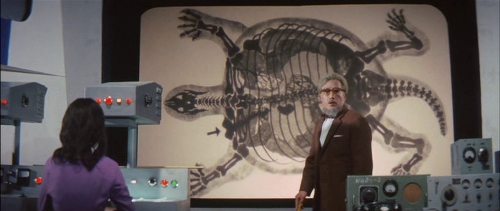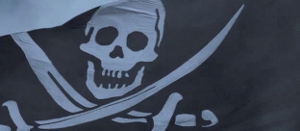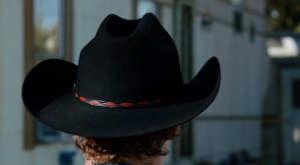
This, the sixth Gamera film, (released in the U.S. as Gamera vs. Monster X) is really the third part in a Pentalogy that ends the series, all following the same basic outline. A New Monster arises, Gamera loses his first fight, and spends half the movie down for the count as the Military/Scientific/Industrial Complex fails to combat the latest kaiju threat. A pair of Annoying Kids (one Japanese, on Token Anglo), Designated as Our Duel Protagonists, take it upon themselves to deal with a human-sized problem, and their plucky spirits rouse Gamera, Friend to All Children, from his mid-movie stupor. He wins the Climactic Battle as the Kids watch from Minimum Safe Distance, ruining the fun for everyone with their high-pitched color commentary. Cue credits.
With this one, I can’t even escape the opening credits without deducting points for stock-footage. Someone’s mom obviously told them to “put their best foot forward,” but I doubt “reuse fight scenes from the previous five films” is what she really meant. In fairness, the is the last we’ll see of previous battles…though not, as I’ll discuss later, the last time we’ll see stock footage. However, Gamera vs. Jiger can still boast the least amount of stock footage in any Gamera film since Gamera vs. Gaos. Marvel at that for a moment. It’s almost as if Team Gamera enjoyed a budget increase after their success with vs. Viras and vs. Guiron. If so, it only accelerated Daiei Studios collapse into bankruptcy. But we’ve one more film before that happens. Continue reading Gamera vs. Jiger (1970)


